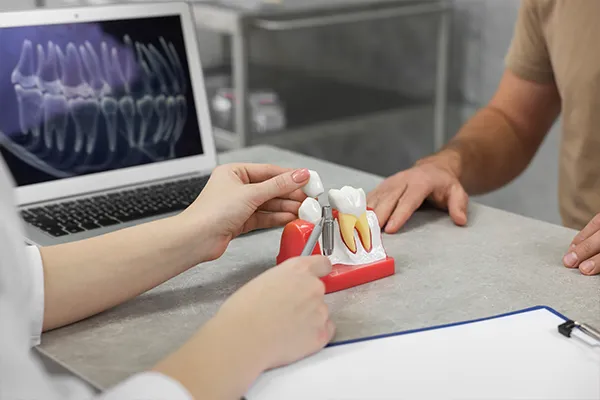Thinking About Traveling Abroad for Dental Implants?
Posted on 8/18/2025 by Djawdan Center |
 Costa Rica, Mexico, Turkey, India. These destinations are often promoted for full-mouth dental implants at a fraction of the cost you'd pay in the U.S. At first glance, it may seem like a smart financial decision — but many patients don’t realize the true cost of rushing complex treatment until something goes wrong. Costa Rica, Mexico, Turkey, India. These destinations are often promoted for full-mouth dental implants at a fraction of the cost you'd pay in the U.S. At first glance, it may seem like a smart financial decision — but many patients don’t realize the true cost of rushing complex treatment until something goes wrong.
At the Djawdan Center for Implant & Restorative Dentistry in Annapolis, we’ve met countless patients who return home after having treatment abroad, only to face unexpected complications — from loose bridges to painful infections — with no realistic way to return for help.
We’re not here to criticize. We’re here to help you understand the full picture before you go.
What You Should Know Before You Go
1. Good materials ≠ good outcomes.
Many clinics abroad do use respected implant brands like Straumann. But long-term success depends less on the brand name and more on clinical judgment and experience — especially in complex cases like full-arch restoration.
When treatment must be completed in a 7–10 day window, the clinician may place implants where bone is available, not necessarily where support is ideal. And if the doctor lacks decades of experience managing these difficult cases, they may avoid more advanced surgical techniques that would require more healing time — or more precision. Instead of "threading the needle" through challenging anatomy or performing bone grafting and allowing it to mature, they may default to what feels easier or safer within the timeframe.
This can lead to insufficient support for your bridge, increased risk of screw fractures, and premature failure of components or implants. In short, rushing decisions to meet a travel timeline compromises the quality and longevity of your results — even when good materials are used.
2. Speed comes at a cost.
Full-arch implant treatment is not a quick procedure. It typically involves multiple stages: implant placement, healing, assessments, and adjustments before a final bridge is delivered. Condensing this process into a 1–2 week visit often means no time to assess healing, no chance to course-correct, and no opportunity to refine the design of your bridge for long-term success.
3. Follow-up care is nearly impossible.
When you return home and something doesn’t feel right — your bite is off, the bridge feels loose, or you’re in pain — the only option many clinics abroad offer is, “Come back.” But returning means paying for international airfare again, missing work or family obligations, and taking a financial hit that erases any cost savings. And if you seek help locally, many practices won’t take on a case they didn’t treat — especially if the prosthetic design is compromised.
4. It seems like everything went great — until it doesn’t.
Most patients who travel abroad return home feeling happy at first. They’ve got a new smile, implants in place, and a finished bridge — just like the travel brochure promised. But the complications don’t usually happen right away. What we often see is that 12 to 36 months later, the problems start: screws loosen, the bite feels off, bridges rock, components break, or infections arise.
This happens because the bridge wasn’t properly supported from the start. Implants may not have been placed in the key positions needed to carry the load of daily function. The prosthetic span may have been too long, or the support insufficient. These shortcuts lead to stress, fatigue, and eventual failure. Simply replacing a screw won’t fix the issue — the real problem is structural and may require removing and rebuilding the foundation.
A Real Story: When “Affordable” Becomes Expensive
One patient came to us after having zygomatic (cheekbone) implants placed abroad. Complications arose during healing, but the surgical team wasn’t available. When she returned for her final bridge, signs of implant failure were already present — yet they moved forward. A year later, she has painful swelling, two failed zygomatic implants, and now faces surgery and full revision.
You Deserve Better
Dental implants can change your life — when done safely, thoughtfully, and with proper follow-up. At the Djawdan Center, we offer a staged approach to treatment, IV sedation for comfort, expert planning, and in-person support every step of the way.
Before You Book That Flight…
We invite you to schedule a complimentary consultation with 3D imaging. No pressure — just clear answers and guidance so you can make an informed decision about your health, investment, and smile.
You only get one smile. Let's make sure it’s built to last.
■ Located in Annapolis, MD — serving patients across the Mid-Atlantic who value experience, comfort, and care that doesn’t cut corners.
|
|
